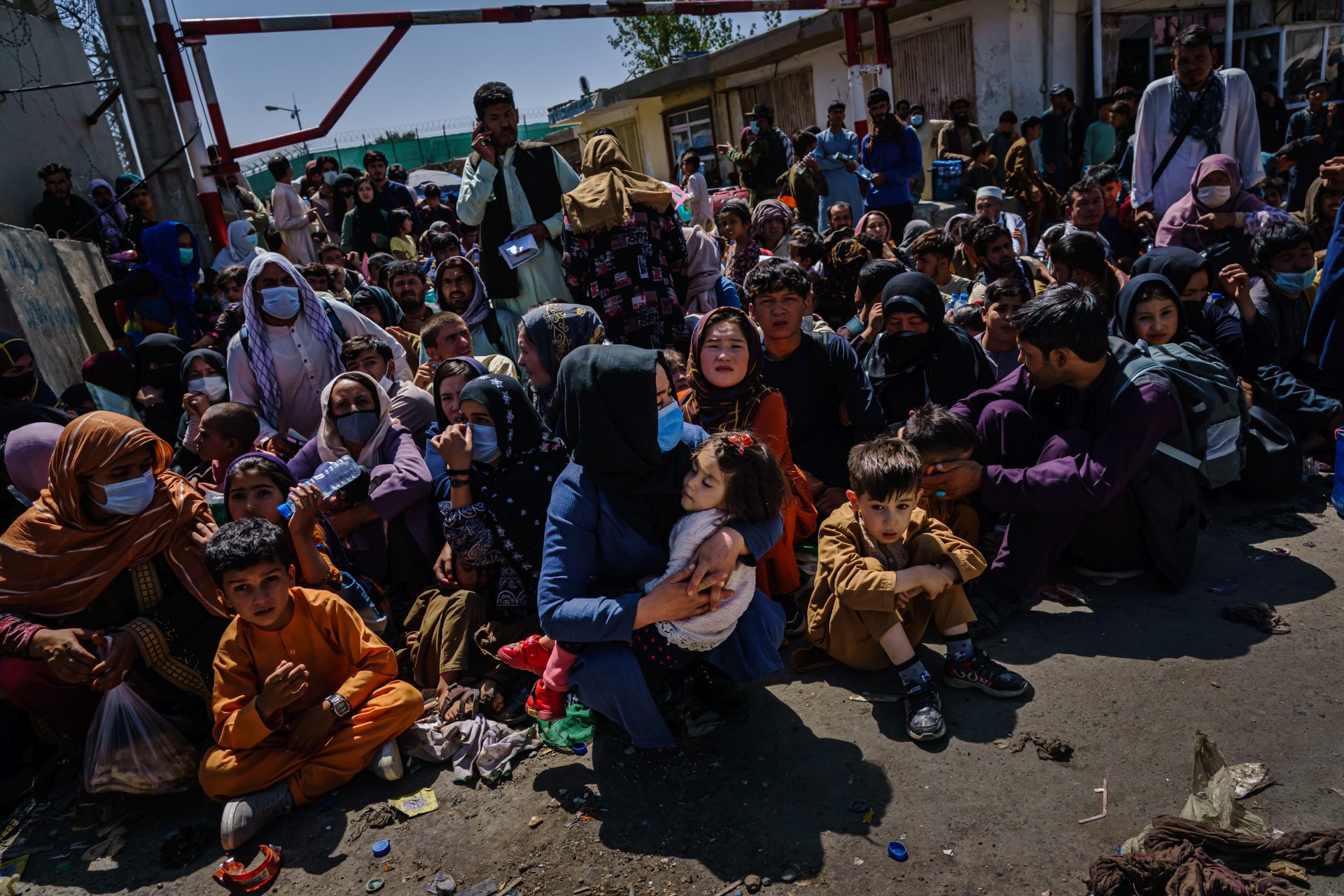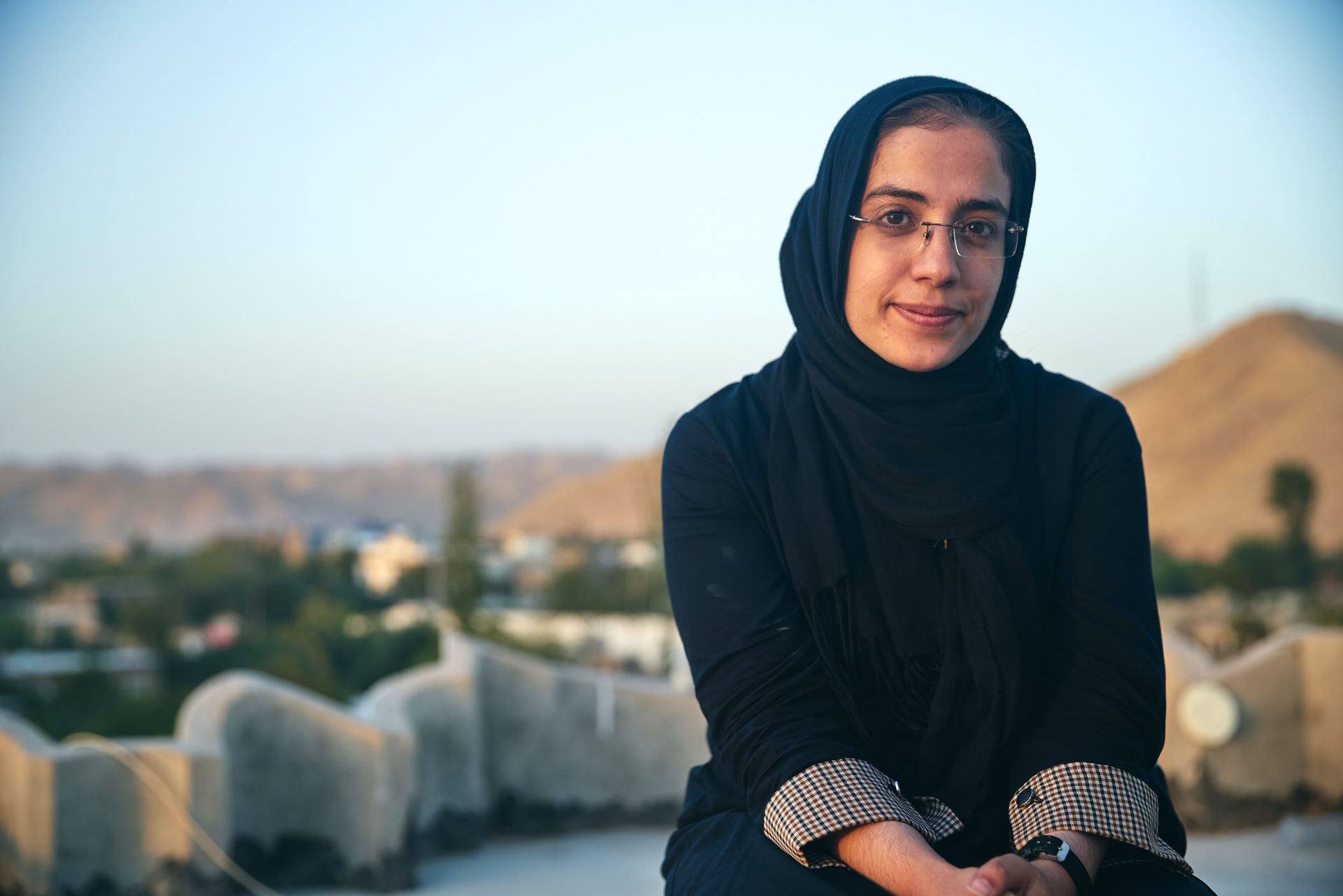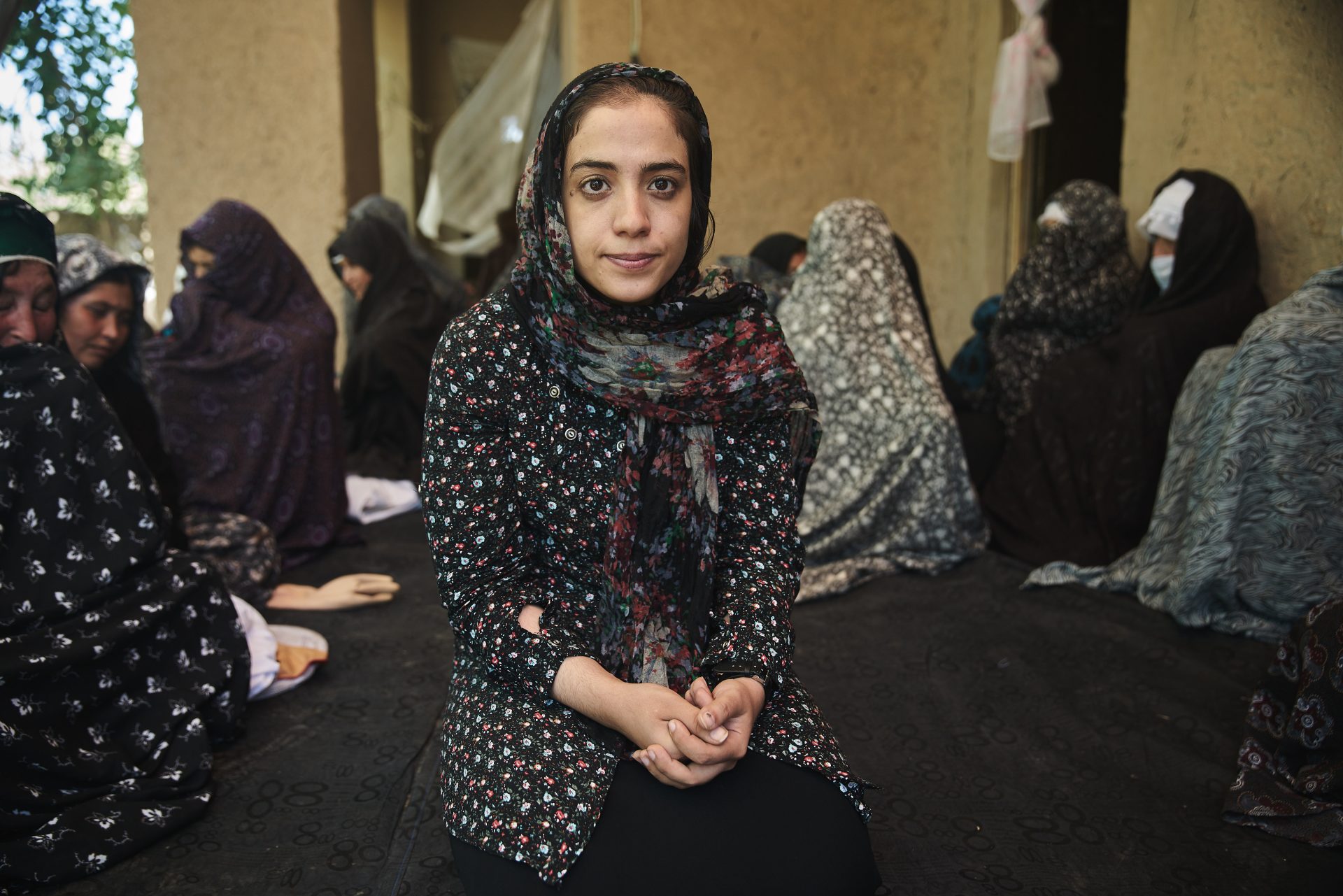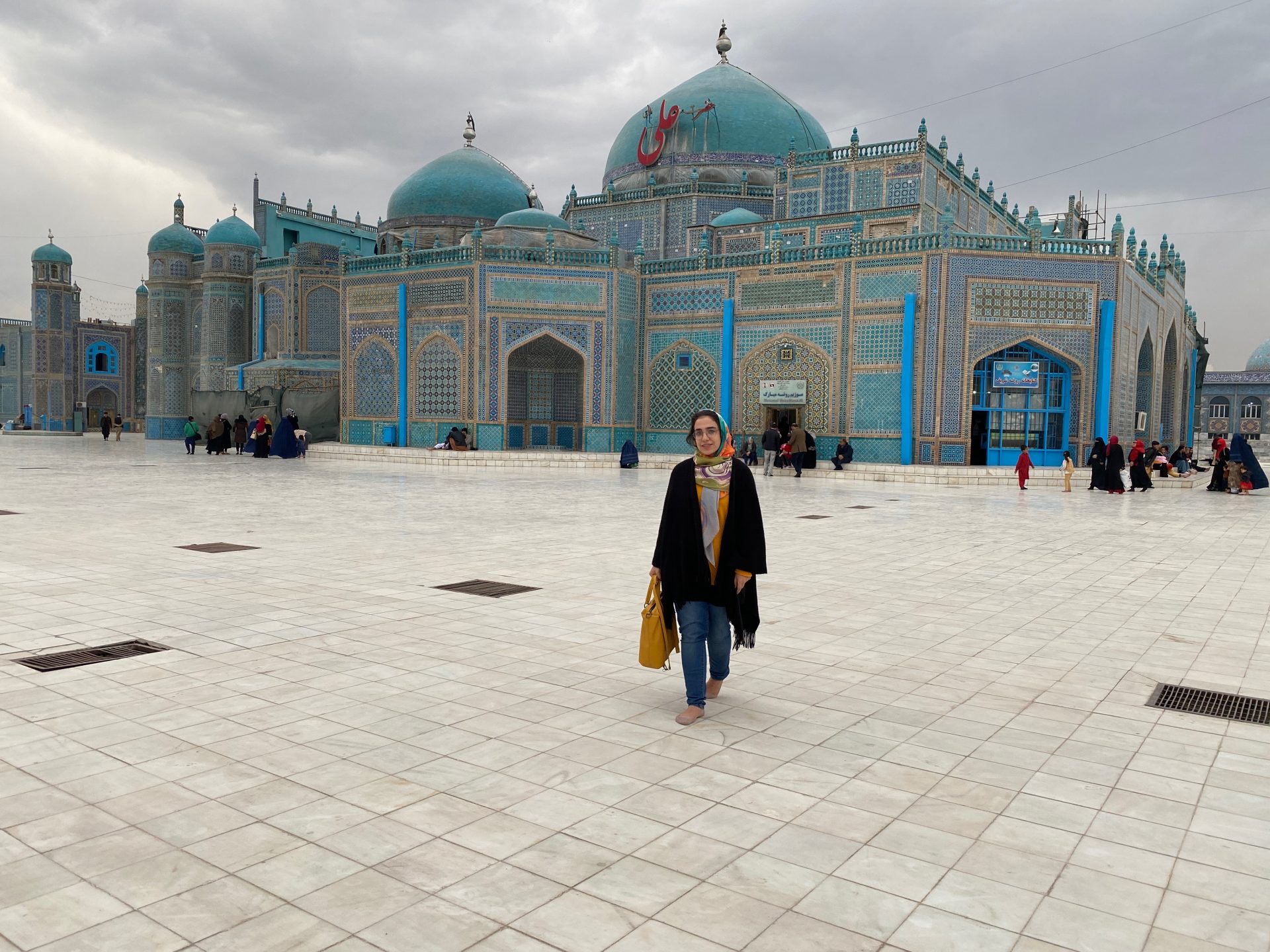Written by Amy Beecham
An Afghan woman and human rights advocate who recently fled Afghanistan tells Stylist what it’s like to live under Taliban rule, and escape it.
Following their occupation of the city in July 2021, the Taliban currently hold full control of Afghanistan’s Kabul international airport after the last U.S. plane left its runway on 1 September. However, amid the chaos and violence, there has been an increased flow of U.N. aid, including£30 million of life-saving supplies for Afghan refugees fleeing to neighboring countries supplied by the UK.
The last time the Taliban ruled Afghanistan in 2001, they were guided by a strict interpretation of Islamic sharia law that often led to the coercive control of, and violence towards, women and girls.
However, following their takeover of the Afghan capital Kabul on 15 August, a spokesman for the group insisted that things will be different this time around. Speaking in a press conference, Zabihullah Mujahid promised the nation that “there will be no discrimination against women.”
“We are going to allow women to work and study. We have got frameworks, of course. Women are going to be very active in the society but within the framework of Islam,” he commented, adding that “there will be a difference when it comes to the actions we are going to take” compared with 20 years ago.
Despite these claims, the International Rescue Committee estimates that over 50% of those in need of humanitarian assistance are women and girls.
Indeed, women and children have comprised 46% of civilian deaths and injuries in the last year in Afghanistan, and multiple human rights groups have warned against increased violence towards women and a rise in child marriage under Taliban rule.
Narges Ghafary, a 34-year-old human rights advocate and her family were displaced from Afghanistan during the Soviet invasion of the 1970s and 80s, but later returned in 2007 after the Taliban were ousted by US-forces.
In July 2021, she fled the country once more, just as the Taliban’s occupation was beginning.
This is her account.
During the Soviet invasion of Afghanistan, my family fled to Iran as refugees. Though I was born in Iran, I always hid my nationality and never told anyone where we were really from. Iranians used to think that Afghans were poor and uneducated, so I pretended. But it meant that I left high school with no real identity.
My family returned to Afghanistan in 2007, when I was 20. It was the first time I had ever been to my home country, and I didn’t know what to expect.
In my imagination, Afghanistan was a dark country. I didn’t know if my house would have electricity or water, or if I’d have friends. But as soon as we crossed the border from Iran, I saw blue skies and clouds. People were moving.
But in comparison to Iran, Afghanistan was still underdeveloped. Women dressed and acted differently, and it was clear that I wouldn’t have the same freedoms – wearing colourful clothes or walking alone – as I did before. Things were very hard for us economically. My father had no job, and my mother was a housewife, but I was allowed to continue my education.
“I’m so glad I got out when I did, but I feel guilty”
Although the curriculum was very different to what I had studied in Iran, I was able to go to university for midwifery. I wanted to be a doctor, and I was told that after two years of studying, I would be able to continue to medical school. But by the time I had completed those two years, they told me that the policy had been changed.
I later joined an international NGO, which allowed me to visit remote parts of the country, speaking to women and girls and hearing their stories. I even travelled internationally. I was lucky that I had a family who supported me travelling abroad alone, when many women weren’t even allowed to walk on their own in the street.
But I was very ambitious. I also continued my education in computer science, and became involved in communications. It had been a dream of mine to go to America and pursue a Master’s in communications, but my visa kept getting rejected.
I finally arrived in America on 19 July, barely a week before the Taliban took back control of Kabul and began closing the airport. My initial plan was to leave at the end of July, but then I saw the situation on the ground getting worse and the airport closure and knew I needed to leave earlier. I’m so glad I made that decision.
I’m so glad I got out when I did, but I feel guilty. I feel safe here, but I can’t fully enjoy my freedom when my friends and family in Afghanistan are sinking in a large ocean. Now I’m in a place where I can wear whatever I want and go wherever I want, but my friends and my family are still struggling.
I go to sleep at night with news from Afghanistan and wake up again with more bad news. When I speak to my family, they try to tell me that everything is OK and that they’re safe, but then I see they’re not.
It’s heartbreaking to see how the country has collapsed in the blink of an eye.
Women in Afghanistan have been fighting for their rights for 20 years. I was one of those women, and it wasn’t easy. In such a male-dominated country, women are judged for the way they dress, the way they speak, the tone of their voice. We made a lot of progress in those 20 years, but now all of those achievements mean nothing. They’re multiplied by zero.
Now, under the Taliban, women cannot raise their voices. Most of them don’t have smartphones and the internet, or they’re afraid to talk about their situation. If they talk, they’ll be targeted. Their families will be punished or they will be killed. Killing is easy for the Taliban.
A friend who is still in Afghanistan told me that a few days ago, the Taliban announced via the mosques that girls above grade six (11 years old) can no longer go to school “until further notice”. Women who work for the government, or international bodies, have been told not to continue their work for the time being. My sister-in-law hasn’t gone to work since. They keep saying “we will inform you”.
Women can’t do social activities. They can study, but under an “Islamic framework”.No one knows what that will mean. They’ve also announced that for the girls allowed to go to school, they can no longer sit with boys in the classroom. Again, this rule is “until further notice”. But if girls can’t attend school or further education, they won’t continue. There won’t be any enrollment for a whole generation of young women.
The Taliban want to buy the trust of the international community by saying “Look, we’re letting girls go to school and here’s the evidence,” but it’s just a strategy.
If I’m honest, I struggle to see any hope for the future. All of that footage of people at the airport – they are not people who have hope.
The key to hope for the future is education, and if they take that away from girls then there is no hope. It means they’ll just get married younger, and have children younger and be kept apart from the world. That’s what the Taliban want. They believe that a woman should be there to look after her husband, her home and her children. It’s Talibani rule, no one can ignore it.
The International Rescue Committee has launched a campaign to provide lifesaving aid, provide emergency cash assistance and protection services for internally displaced people in Kabul.
Images: Narges Ghafary/Ben McNamara/NurPhoto/Marcus Yam
Source: Read Full Article




